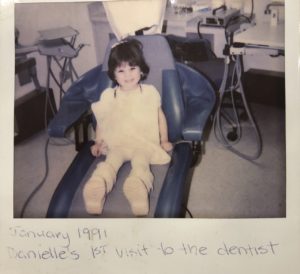Gift Shopping – Dentist Recommended
This Christmas give the gift of good oral health! Dental hygiene products are not only a cost-effective present, they also show your loved ones you care about their health.
Stocking Gifts
Manual Toothbrushes are a great stocking stuffer as they are compact and inexpensive. Most people do not change their toothbrush at the recommended time (every 3-4 months) which makes them a great gift! Chances are all of your friends and family are ready for a fresh, new brush.
Toothpaste is another great (inexpensive) stocking stuffer. This is the perfect time to get your kids excited about their teeth by buying them their own toothpaste with their favourite character or in a cool flavour like bubblegum or fruit punch!
Flossers are perfect for the teen in your life who won’t commit to manual flossing every day. They promote the habit of flossing in an easy and convenient way.
Bigger Gifts
Electric Toothbrushes are perfect for the “speed brusher” in your house. They promote longer brushing time and do a more thorough job than manual brushing. They are also a great alternative for people with wrist mobility and dexterity issues due to age, osteoporosis, arthritis, etc…
Opalescence Go is our new take-home whitening system. It’s a hybrid between a custom tray and a bleach strip that has specially formulated bleach to curb sensitivity. They are stronger than the over-the-counter white strips you can buy and more cost-effective than custom made bleach trays. This is the perfect gift for a graduating teen, busy business person, or to treat yourself.
A Cleaning and Check Up is perfect for the young adult in your life who no longer has coverage under their parents. We see many young adults come less frequently (or not at all) for their regular cleanings when they lose their parent’s coverage. Cleanings can become an expense young adults don’t want to afford when they’re first starting out. But like “preventative maintenance” on your car, seeing a dentist regularly prevents bigger problems in the future!
Call or email today to book your cleaning and check up, or inquire about Opalescence Go!

